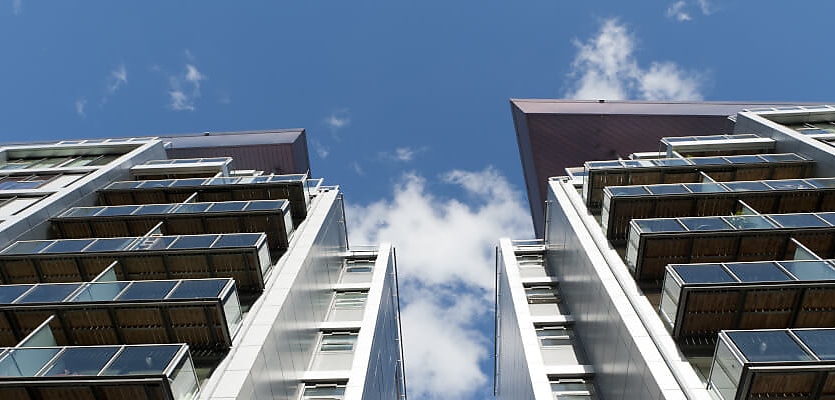The Australian Taxation Office has taken aim at foreign property owners who leave their properties vacant or keep them exclusively for short-term holiday letting; they are now expected to be slugged with significant penalties when they do.
The vacancy rule targets property held by foreign investors that has not been occupied or made available to rent for at least six months in a year, which will now be subject to a fee comparable to the fee paid for the foreign investment application.
Foreign owners who have left their property vacant for over six months can now expect to be hit with fees as high as $100,000.
A year has passed since the federal government announced vacancy tax rules targeting foreign investors, which means infringing foreign investors who purchased an asset after 9 May 2017 can expect to see a fine soon.
Failing to declare the number of occupied days is also subject to fines, according to Pitcher Partners international tax partner Denise Honey.
“The kicker for property owners is that if they do not submit their return within 30 days of the end of the vacancy year, they could be hit with a penalty of $52,500. Further, if they fail to keep the necessary records to prove occupation, they could be hit with an additional penalty of $52,500,” Ms Honey said.
“In addition to such penalties, the owner would still be liable to paying the vacancy fee.
“For a property worth upwards of $4 million, that could equate to combined penalties and fees of more than $150,000 — even if the property has been occupied throughout.”
Offering a property up as accommodation for short-term holidaymakers won’t exempt owners from the fee either.
Relying on short-term letting to make up the rest of the minimum quota will not work in foreign investor’s favour, as short-term letting does not count towards the quota.
“The legislation now deems that short-term leases of fewer than 30 days do not count towards the required 183 days of occupancy. So renting out a property on Airbnb for one-week stints will not suffice to make the property exempt from the annual vacancy fee,” the tax partner said.
“The property must be ‘genuinely available’ for rent for at least six months in a year, so listing a property for rent at an inflated rate to deter renters will also result in liability to pay the fee.”
Foreign investors face different fees depending on the state and territory they invest into.
If a foreign investor purchased a $500,000 property, on top of the $5,200 foreign investment application fee and any additional taxes, Pitcher Partners predicts the following fees:
New South Wales
Recent foreign investor fee changes saw stamp duty surcharges for foreign investors double from 4 per cent to 8 per cent and increased the annual land tax surcharge from 0.75 of a percentage point to 2 per cent.
Stamp duty: $17,990
Mortgage registration: $141.60
Transfer fee: $141.60
Foreign buyers surcharge: $40,000
Total fee: $58.273.20
Victoria
Victoria’s 7 per cent foreign purchaser additional duty applies to recent amendments of the widening of foreign purchaser to include foreign natural persons, foreign corporations and trustees of foreign trusts.
Stamp duty: $25,070
Mortgage registration: $116.80
Transfer fee: $1267
Foreign buyers surcharge: $35,000
Total government fee: $61,453.80
Queensland
Like Victoria, Queensland saw its foreign investor stamp duty charge rise up to 7 per cent, from 3 per cent prior. Additionally, there are plans to rise land tax for properties worth over $10 million by 2.5 per cent.
Stamp duty: $15,925
Mortgage registration: $187
Transfer fee: $1,307
Foreign buyers surcharge: $35,000
Total government fee: $52,419
Western Australia
Western Australia’s 3 per cent foreign property owner surcharge will be increased to 7 per cent in 2019.
Stamp duty: $17,765
Mortgage registration: $171.20
Transfer fee: $261.20
Foreign buyers surcharge (for properties purchased after 1 January 2019): $35,000
Total government fee: $33,197.40
South Australia
Currently, South Australia has a 7 per cent foreign ownership surcharge.
Stamp duty: $21,330
Mortgage registration: $163
Transfer fee: $3,992.50
Foreign buyers surcharge: $35,000
Total government fee: $60,485.50
Tasmania
Australia’s southern-most state has a 3 per cent surcharge in property with an additional 0.05 of a percentage point surcharge on purchases of primary production land.
Stamp duty: $18,247
Mortgage registration: $135.09
Transfer fee: $206.98
Foreign person duty: $15,000
Total government fee: $33,589.57
Northern Territory
A new measure in the 2018–19 Northern Territory budget introduced a vacancy tax for undeveloped or vacant properties of 2 per cent.
Stamp duty: $23,928.60
Mortgage registration: $145
Transfer fee: $145
Total government fee: $24,218.60
Australian Capital Territory
The ACT has a fee of 0.75 of a percentage point on the average unimproved value for residential property.
Stamp duty: $12,100
Mortgage registration: $145
Transfer fee: $386
Foreign buyers surcharge: $3,750
Total government fee: $16,381.00







You are not authorised to post comments.
Comments will undergo moderation before they get published.